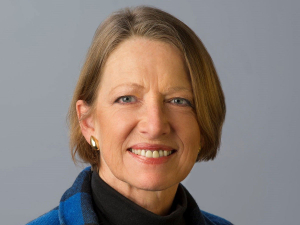OPINION: Increased interest in ‘getting into governance’ is apparent across the country.
This is despite the weight of liabilities that directors of organisations face (search ‘Mainzeal’ on the internet to see the dire example), and the ever-present media (including social) coverage delving into backstories and private lives.
Governance courses have proliferated, associate positions on boards have multiplied, and the average age of people standing for election appears to have decreased.
In the past, governance was something that you might move into having had management and leadership experience and had budget control of funds greater than personal income. Now some people have it as part of their career path, and qualifications (which can be useful) are seen as short cuts.
What drives people to consider governance can generally be ascribed to power, money, personal development or passion. In the primary sector the drive tends to be the latter – the genuine desire to see an organisation do better, and a belief that the candidate considering standing for election has the skills, attributes and experience needed to achieve change for an improved future.
From the outside it is very easy to suggest changes.
Get on the inside and change turns out to be not quite the simple activity imagined.
Change costs more and takes longer than estimated – just like any of the renovation programmes featuring on television.
This problem is so clear from national and regional examples, that it is remarkable that people continue to stand for governance positions. Add in the liabilities that are increasingly being imposed in business, and people standing for any election must have a genuine drive.
That drive needs to be backed with more than enthusiasm. Experience combined with knowledge allows questions to be asked. The naïve inquirer asks open questions without prejudice or prior opinion, but must know enough about the topic to be able to pose the questions in the first place.
The answers to the open questions might then add insight to understanding, from which improved decisions should be able to be made.
In this potential confusion, governance is as much an art as a science, which is why having experience assists, particularly experience with management and leadership.
It is also why there are an increasing number of associate roles to help would-be directors understand the issues and the interaction between board and management.
Rigour of debate is key.
The Australian Institute of Company Directors (AICD) has made the importance of rigour of debate between all parties absolutely clear. In 2019, AICD released a report on the Royal Commission into Misconduct in the Banking, Superannuation and Financial Services Industry. The Royal Commission found “evidence of conduct that caused substantial loss to customers while profiting entities, often breaching laws or community expectations”.
The report reinforced the fundamental tenets of governance by stating that boards and their ‘gatekeeper committees’ must:
- "sufficiently challenge management;
- "do all they can to satisfy themselves that they are receiving the right information and inputs from management to make complex decisions;
- "monitor, measure and assess corporate culture and governance;
- "and provide rigorous oversight of risk, including non-financial risks".
Clearly, directors need an understanding of various topics to be able to do all this. They need to be able to ask informed questions during board meetings to contribute effectively to governance. Understanding allows them to challenge assumptions, seek clarity on complex issues, and ensure the board is making good decisions, based on sound reasoning.
For people thinking about getting into governance, consider what your role will be. What skills and attributes does the company need for the future? Which of these will you bring? What experience do you have as a foundation and context for questions? And are you ready for the responsibility of making decisions about other people’s money?
Everybody making decisions about voting for candidates for national, local or business governance can, of course, ask the same questions.
Dr Jacqueline Rowarth, CNZM HFNZIAHS, Adjunct Professor Lincoln University, is on the board of directors of DairyNZ, Deer Industry NZ and Ravensdown, and of the World Farmers’ Organisation Scientific Council.



















